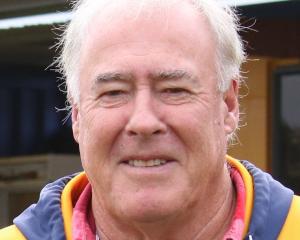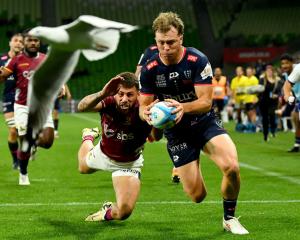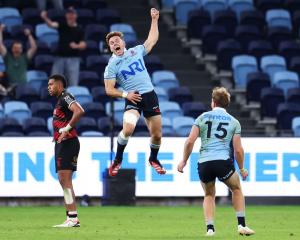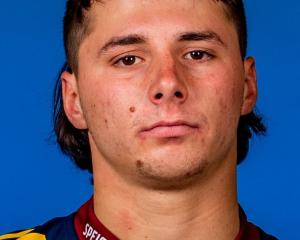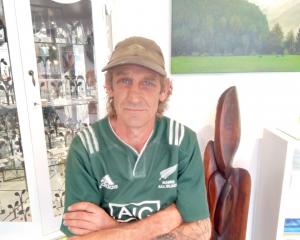In New Zealand, a strong uptake is guaranteed on either pay-per-view television or at matches through the levels from club, ITM Cup, Super 15 and internationals. Rugby is a strong thread in the nation's history.
Across the Ditch, the sport is a much tougher sale on subscriber networks. Television ratings for rugby have slumped to fourth behind the runaway AFL and NRL leaders with the A-league overtaking rugby in the last survey.
That may change after the Lions' tour of Australia, with a huge spike in interest and those reaching for the remote control to catch a once-in-12-years' event.
However, most anticipate if that is the case, it will be a temporary smokescreen for the difficulties facing the game in Australia. It does not sell. It does not rate and does not attract enough new fans. Who could blame them after taking in the Rebels' effort against the Lions midweek?
It was a great occasion, something the host players and in particular their skipper and Welsh international Gareth Delve will treasure as one of his best moments in the sport, but as a contest and an example of rugby it was tepid.
About 26,000 filled the ground and they will all have personal accounts of the night the Lions came to the great southern city. Many of them were Lions supporters or expats who took the chance on a brisk but clear night to go and watch a part of rugby history in the state.
The sport has existed in Victoria for more than a century but it remains a minor code played in some private schools with a franchise plonked in the middle of the city.
The Rebels are allowed to recruit more foreign players to help reduce them skimming top players from other Australian franchises. It has not stopped that flow, with Reds loose forward Scott Higginbotham persuaded to join this season.
Wallabies James O'Connor, Nick Phipps and Kurtley Beale inhabit the Rebels but not for much longer. Beale and Phipps are heading back to the Waratahs next year. They have collected some serious money and in Phipps' case, he has been able to nail his Wallaby aspirations. Beale, like one of the squad's founder members, Danny Cipriani, gathered more unwelcome headlines about his behaviour and is shuffling back to Sydney.
Club stalwarts talk warmly about the loyal strength of the Rebel Army fans, the character of the group and their improving record. They want it to develop some of the sting the Brumbies showed and similar messages come from the ARU.
Others believe Melbourne gained the fifth franchise as part of a TV rights strategy even though, as a rugby zone, it has reached its maximum interest. The Rebels, they argue, have stretched the national talent base too thinly at the expense of the other franchises.
Ambitious New Zealanders or those who have fallen through the cracks like Ged Robinson, Jason Woodward and Scott Fuglistaller have found their way to the club.
Chief executive Rod Clarke came to the Rebels this year from the Brumbies, to work on various financial rescue ideas. Original investor Harold Mitchell was withdrawing some of his help and there were noises the ARU was reluctant to continue to bail out the club.
Clarke acknowledged most sports groups were a tough financial grind and it was difficult for the Rebels to come into Super rugby late and into the ultra-competitive Melbourne market.
Progress would not be easy but the situation was not "dire" and like most sports clubs it was a "lineball operation". Clarke's descriptive choices suggest a fair amount of anxiety about the Rebels' financial ability to underpin their group and their capacity to develop much more.
There is heat on everyone. Coach Damien Hill is under pressure and a decision on his longevity will be made in the next month.
So while Tuesday night in Melbourne was a grand occasion, that's all it was. The match with the Lions was a once-in-a-season chance to invest in some attraction and then file it in the scrapbook for an "I remember" moment if the Lions return in another 12 years.
- Wynne Gray in Melbourne




